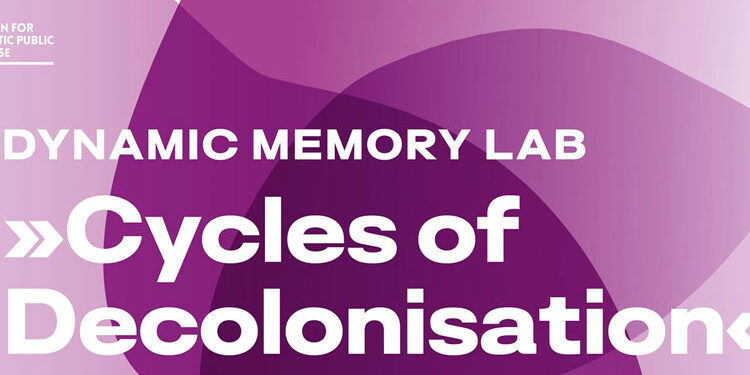Within the Dynamic Memory Lab, until next August 31, the Instituto Goethe of Madrid presents the immersive exhibition Cycles of Decolonisation (Ciclos de descolonización), which reflects on how the legacies of European colonialism and the challenges of mental decolonization continue to shape relations between people and cultures in Europe. Colonization is not examined as a mere historical event, but as a living structure that persists in contemporary inequalities and hierarchies within Europe.
The exhibition examines five key concepts of colonization, as defined by the Portuguese artist Grada Kilomba. These interrelated concepts are presented through various artistic contributions: dehumanization and violence, racialization, denial of memory, displacement and silencing and elimination.
Cycles of decolonization refers to the current process of changing mentalities, understanding one’s own social status, healing wounded memories and accepting different identities. The recognition of colonial structures rooted in language, culture and thought is a crucial first step towards their dismantling in today’s so-called “postcolonial” world.
The exhibition invites visitors to become actively involved in fostering dialogue, developing a critical awareness and making significant progress towards justice and human dignity. Encourages questioning consolidated stories, listening to bypassed narratives and creating space for multiple perspectives. It also inspires collective efforts to build a more inclusive and plural future based on equitable relationships and respect for difference.







